#nypd cop
Text

Officer: "So I heard about you."
Me: "All good I hope?"
Officer: "Well I heard you take it in your mouth."
Me: "Well that's good."
Officer: "And I heard you swallow!"
Me: "That's even better."
It's the little things that count, like not having to pull out, and there was no way this stud was gonna blast anywhere other than balls deep in my mouth.
That's just how New York's finest roll.
#so I hear you swallow#do you swallow?#get in the car#get in and go down#hot cop#not looking to pull out#ride along#just fucking blow me#nypd blue#NYPD cop#New York's Finest#NYPD Blue
152 notes
·
View notes
Text
Summary- yn accidentally gets a paper cut and Esposito is there to help her.
Genre- fluff
Warnings- none unless a paper cut is one
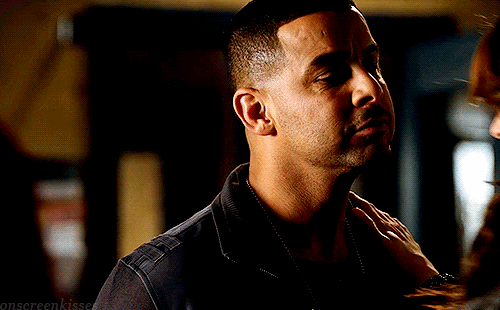
I was going through some files, for the case we were working on, a teenage prostitute found dead with a plastic bag wrapped around her head.
Totally normal I guess.
Out of no where my finger slid a little harshly against the side of the page and I cut my finger.
"fuck". I muttered.under my breath as espo noticed and instantly came to my side.
He grabbed a cloth and wet it with some of the water from his bottle before grabbing my finger softly cleaning it.
"babe it's fine I could done this my self y'know" I say wincing as he went over the cut again, With a little more pressure to make sure all the bleeding has stopped.
"I know you could've baby, but I like taking care of my girl". He says sweetly looking up at me as he got a bandaid from his draw and wrapped it around my finger.
Before kissing it lightly.
I laughed a little at his gesture to Wich he smiled about as I stood up to give him a hug he wrapped his as around me tightly swinging me around.
I laughed again as he sat down with me landing in his lap.
he gave me a kiss as as I was straddling him I turned around to hear.
Ryan, Kate and castle.
"you guys are super cute". Ryan says taking his seat Wich he always sits at Wich is my desk.
I turned around on his lap to face them as he wrapped his arms around my waist securely, resting his chin I'm my shoulder.
"why thank you Ryan". I say In a fake accent Wich makes them all laugh.
"yea but not as cute and adorable as me and Beckett". Castle says as Kate looks at him.
"sorry castle, but espo and yn are definitely cuter". She says as he fake pouts Wich everyone laughs at even more.
"she's right castle even tho I'm married, I still feel single when I'm with these two". Ryan says as espo kisses my shoulder.
"that's cause we're just amazing". Esposito says as he looks at me lovingly.
This boy is definitely my soulmate.
33 notes
·
View notes
Text
New Police Body Cam Data Exposes the True Scale of NYPD Violence Against Protesters
#nypd cop#fuck the nypd#nypd officer#nypd blue#nypd budget#defund nypd#nypd#new york#new york post#new york police department#new york politics#newyorkpolice#made in usa#usagi tsukino#usagi yojimbo#usa today#usa#unitedstatesofhypocrisy#unitedstateofamerica#united nations high commissioner for refugees#unitedaustraliaparty#united states#united kingdom#manchester united#united nations#united arab emirates#ausgov#politas#auspol#tasgov
0 notes
Text
#talkin#tik tok#nyc#subwayoracle#nypd#new york city#acab#fuck police#fuck cops#fuck the police#fuck the cops#eric adams#surveillance state
488 notes
·
View notes
Text

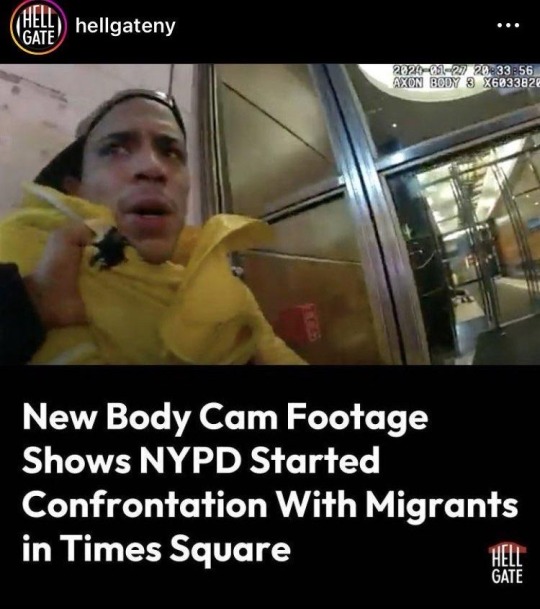

New York police tried to bully some migrants the same way they bully Americans and got their heads kicked in.

83 notes
·
View notes
Text

A special police unit with armored sidecar engines at a demonstration in Central Park, 1931. Such vehicles, developed primarily to chase the cars of armed gangsters, slowly became obsolete after Prohibition was repealed.
Photo: New York Times
#vintage New York#1930s#Prohibition#police#NYPD#1930s gangsters#vintage cop cars#cop cars#Prohibition crime
62 notes
·
View notes
Text
By Stephen Millies
The corporate media has been obsessed about the downfall of their former hero, Rudolph Giuliani. The ex-mayor of New York City was seen leaving 2nd Chance Bail Bonds in Atlanta after surrendering to authorities as one of Trump’s co-conspirators.
Giuliani should have been jailed a long time ago.
#Rudy Giuliani#Donald Trump#racism#white supremacy#NYC#NYPD#killer cops#Jan 6#Atlanta#fascism#capitalism#Wall Street#protest#Struggle La Lucha
36 notes
·
View notes
Text

I love everything about this photo. The NYPD jacket despite writing arguably the greatest anti-cop song of all time, the lace up leather boots, the little bottle of juice hes carrying, the fact that he's 35 in this, the fact that it was taken on valentine's day
#julian casablancas#the strokes#i miss 2013#2013 girly#hot as fuck#cool#badass#new york city#nypd#nypdofficer#all cops are bastards#fuck the police#punk
14 notes
·
View notes
Text
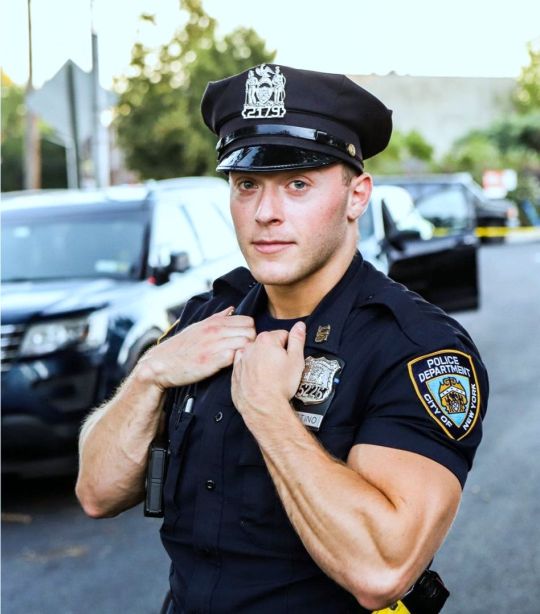
"You wanna do what?"
Oh yeah, he heard me, and it got more than just his interest up.
#you wanna do what?#do what now?#made him an offer he couldn't refuse#NYPD#nypd cop#new york police department#well built#you'd better be good for it!#hot cop#nypd blue#nypd blew#blue loads matter
48 notes
·
View notes
Text
"a few bad apples don't spoil the bunch" yeah but have you considered that the soil is rotten and the farmer is spraying the tree with pesticides and worms have spread throughout the entire orchard and and and—
#current events#anarchism#acab#fuck cops#police abolition#anarchy#antifa#fuck the police#police accountability#police brutality#police corruption#all cops are bastards#defund the cops#defund the police#defund nypd#anti fascist#anti capitalism#anti cop#anti police#all cops are pigs#caesthoffe.txt#i am very angry
27 notes
·
View notes
Text
NYPD officer used an illegal chokehold on a black man in Far Rockaway, NY - and only stopped because another cop realized they were being filmed.this is after the law was passed!! Spread this please!!
#new york police department#nypd officer#nypd budget#fuck the nypd#nypd cop#nypd#nypd blue#omnipresence nypd#new york#1312#acab#allcopsarebastards#all cops are bad#kkkops#kkkop#amerika#amerikkka#make america gay again#america#made in usa#usa#biden corruption#jill biden#biden administration#president biden#bidenflation#biden is obama's puppet#fuck biden#joseph biden#biden crime family
1 note
·
View note
Text

#daniel penny killed jordan neely#jordan neely#this is amerikkka#nyc police#defund nypd#ftp#acab#defund the police#defundthepolice#police brutality#capitalist system#black lives matter#no justice no peace#defund the police fund our communities#all cops are bastards even the ones you know
41 notes
·
View notes
Text
youtube
Watch the American Climate Leadership Awards 2024 now: https://youtu.be/bWiW4Rp8vF0?feature=shared
The American Climate Leadership Awards 2024 broadcast recording is now available on ecoAmerica's YouTube channel for viewers to be inspired by active climate leaders. Watch to find out which finalist received the $50,000 grand prize! Hosted by Vanessa Hauc and featuring Bill McKibben and Katharine Hayhoe!
#ACLA24#ACLA24Leaders#youtube#youtube video#climate leaders#climate solutions#climate action#climate and environment#climate#climate change#climate and health#climate blog#climate justice#climate news#weather and climate#environmental news#environment#environmental awareness#environment and health#environmental#environmental issues#environmental justice#environment protection#environmental health#Youtube
5K notes
·
View notes
Text
its so funny to me, because i went into good omens a die-hard david tennant fan. like he’s my favorite doctor, ive watched most of broadchurch, hes like my emotional support bbc actor. and this is not me saying i love him any less, bc thats not true! hes a brilliant actor and a lovely human and is one of, if not, my most favorite actor of all time.
but mr. michael sheen…………. i have Words for you sir.
//all good words i am in awe of you my guy//
#this man. This Man#because of this man ive went down a complete rabbit hole of his previous work#because he is so fucking good at his job i have watched a whole film that hes maybe centered in five scenes total#ive been sucked into a cop show that is a little bit on the nose writing-wise but holy shit holy SHIT this mans acting#he plays a serial killer who’s father to an nypd criminal profiler and im jist in awe every single time he comes on screen#how. how does he do it. if i was told that he was a narcissistic sociopath with 23 victims under his belt i would believe you 100%#rarely do i ever follow actors instead of fandoms and michael sheen has broken through dammit#i now understand when david says hes inspired by him the guy is so talented#michael sheen#david tennant#talking cat#ill quit yelling now lol i was just bursting at the seams about him
13 notes
·
View notes
Text
101 notes
·
View notes
Text
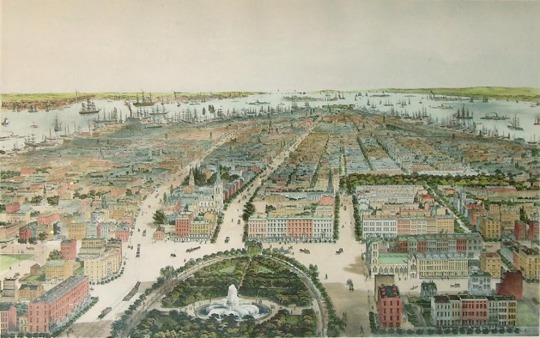
In the years before the Civil War, New York police officers sold free Black Americans into enslavement. Public Domain/Courtesy of Wikicommons
Clashes between protestors and the police from Portland to Atlanta to Kenosha are recent flashpoints in the long history of policing in America. While the police today emerged from a hodge-podge of national and international iterations, one of the United States’ earliest and most storied forces, the New York City police, offers modern Americans a lesson in the intractability of problems between the black community and the officers sworn to uphold the law.
That long history is both bleak and demoralizing. But this past also reminds us that real change will only happen by learning from the collective American experience, one in which those who supported systems of oppression were met by others who bravely battled against them.
As the nation’s most populous city for most of its history, New York has been uniquely affected by this dynamic. In the decades before the Civil War, when Gotham’s police force was becoming regularized and professionalized, Manhattan routinely erupted in riotous violence over the very meaning of equality.
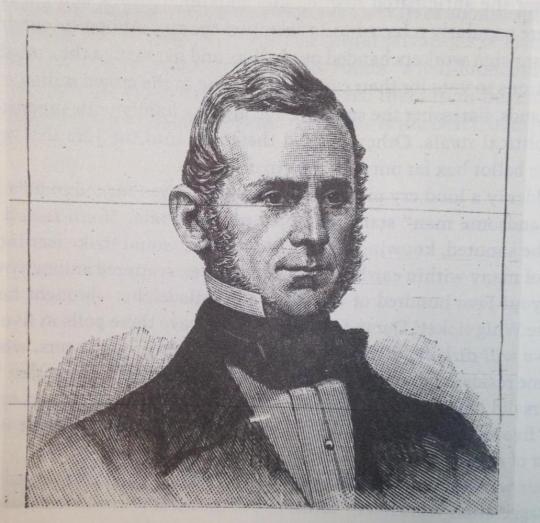
No one individual embodied the brawling roughness of New York policing like Captain Isiah Rynders of the U.S. Marshals.
Born in 1804 in the Hudson River town of Waterford, New York, Rynders was a gambler on Mississippi River steamboats. He reportedly killed a man after a card game and fled to his home state around 1837.
Known for his thunderous voice, a powerful memory, and a penchant for histrionics, Rynders made an immediate impact on New York City.
Black New Yorkers became his main target, and for decades, he patrolled the streets looking for runaways who had escaped enslavement in the South and who, against tremendous odds, had found freedom in Manhattan.
The Constitution’s Fugitive Slave Clause required northern free cities like New York to return the self-emancipated to their southern enslavers, and the NYPD and officers like Rynders were only too willing to comply, conveniently folding their hatred of black people into their reverence for the nation’s founding document. Armed with the founders’ compromise over slavery, Rynders and his fellow officers,
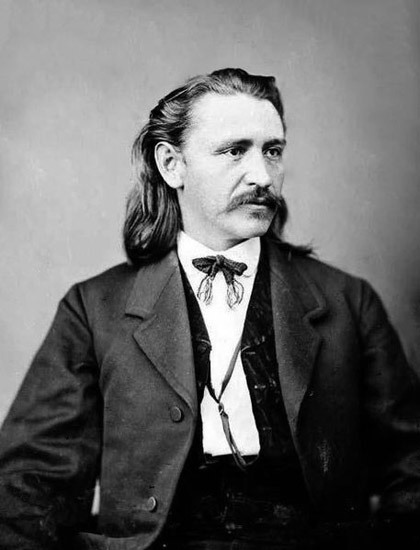
men like Tobias Boudinot and
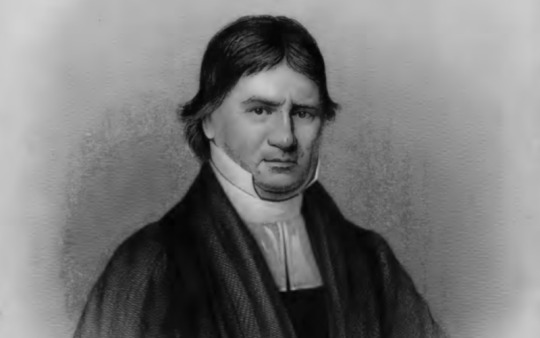
Daniel D. Nash,
terrorized New York’s black community from the 1830s up through the Civil War.
And, even worse, it often mattered little whether a black person was born free in New York or had in fact escaped bondage; the police, reinforced by judges like the notorious city recorder Richard Riker, sent the accused to southern plantations with little concern and often even less evidence.
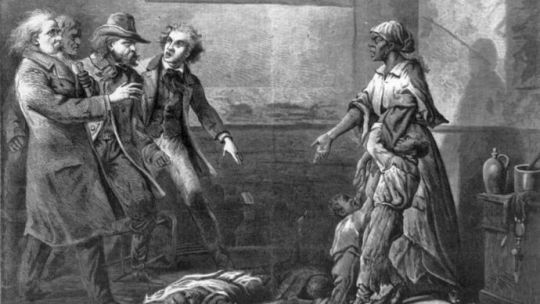
Thanks to Rynders, Boudinot, and Nash, the New York police department had become an extension of the powerful reach of southern slavery, and each month—and often each week in the summer months—brought news of another kidnapping or capture of a supposed runaway.
Black New Yorker John Thomas, for example, was claimed by an enslaver from Louisville, Kentucky. Thomas purportedly fled slavery along the Ohio River, then travelled through Canada, and ultimately found a job as a porter in a Manhattan hotel.
In late 1860, Thomas was arrested as a fugitive by the Manhattan police. While in prison, Thomas hastily drafted a note, dropped it out his cell window, and asked a passing boy to give the note to his employer, who submitted a writ of habeas corpus.
Unfortunately, the marshal on duty was none other than Rynders, who produced a different black man in response to the writ, and the judge declared the writ satisfied. In the meantime, Thomas’ employer and friends learned, too late, that one of Rynders’ deputies had taken the real John Thomas to Richmond, where he would be transported to Kentucky, lost in the darkness of American slavery, like untold numbers of other kidnapping victims.
Fortunately, New York’s black community was not without heroic defenders like David Ruggles, the tireless activist and journalist. Ruggles led the city’s antislavery community while the likes of Rynders, Riker, Boudinot and Nash, a group so wicked that Ruggles had labeled them “the kidnapping club,” patrolled the streets and docks in search of their next prey.
Joined by activists like Horace Dresser, Arthur Tappan, Charles B. Ray and other antislavery protestors, Ruggles fought relentlessly against those officers and marshals who threatened black liberty.
Just as modern protestors decry the role of the police in the quest for order, black and white activists in pre-Civil War New York claimed that the force was little more than a vigilante expression of the worst tendencies of white residents.
A more professionalized police force, however, did not mean one more suited to the protection of black civil rights. On the contrary, in the early 1800s, the police proved sadly and persistently indifferent to the black lives they were supposed to protect.
By modern standards, the early NYPD was a ragtag band of barely organized and only partially trained officers. The daytime police remained inadequate to deal with the robberies, violence, prostitution, gambling and other crimes of a city approaching 300,000 people in the 1830s.
Only 16 constables, elected by citizens of each ward, along with about 60 marshals appointed by the mayor, patrolled the city. Only constables and marshals had the power to arrest under a magistrate’s orders. Armed with warrants issued by Riker, marshals like Rynders could terrorize Gotham’s black residents, who came to fear the police presence in their neighborhoods.
Part of the fear emanated from the fact that Rynders’ confederates Boudinot and Nash did not wear uniforms or carry any kind of badge signifying their authority.
The familiar dark blue uniforms of the NYPD were not instituted until the 1850s, so African Americans harassed or arrested by the police could not even be sure that they were being accosted by legal authorities.
Equally problematic was the fact that neither Nash nor Boudinot earned regular salaries on which they could depend; their ability to support themselves and their families came from fees set by state law, which virtually required officials to arrest as many people as possible.
The situation almost guaranteed corruption, and tied the financial interests of the New York police force to the financial interests of southern slaveowners. Not that they needed any push to over-police the black community, but patrollers like Nash and Boudinot had every incentive to use their blanket writ to arrest as many accused fugitive slaves as they possibly could. In fact, their financial well-being depended on it.
Boudinot and Nash operated almost like independent agents in a police force that was itself in disarray, an institutional chaos that only rendered Black lives even more vulnerable. Fernando Wood, elected mayor in 1854, controlled the police department and relied heavily on Irish immigrants to man the force.

But by the 1850s, anti-Irish politicians were trying to establish a new police force, soon to be called the Metropolitans, that would replace Wood’s Municipals. A clash erupted in 1857 when Wood refused to back down, and for months, the city actually had two competing police departments who battled each other as much as they combatted crime.
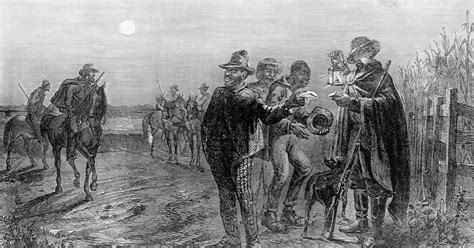
Both Wood’s Municipals and the state’s Metropolitans were guilty of malfeasance and dereliction of duty.
In fact, the Municipals, led by police chief George Matsell, had been called “slave catchers” by the city’s black community and its allies in the Republican press.
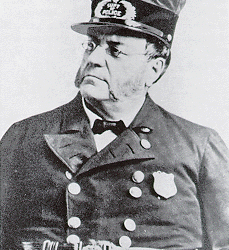
George Matsell, a member of the NYPD since 1840, himself was suspected of corruption, and rumors spread that he extorted money from criminals, seized stolen property for his own use, and skimmed the profits of illegal activities.
By the time the Municipals and Metropolitans vied for control of the New York police, Matsell had managed to build a sprawling summer mansion within a vast vineyard in Iowa, where local landmarks still bear his name. New York politician Mike Walsh labeled the heavy-set Matsell a “walking mass of moral and physical putrefaction.”
The crisis between the Municipals and the Metropolitans was only resolved when Wood and the Municipals finally backed down and the Metropolitans emerged as the city’s permanent and only official police force. Yet, the new police force proved no more respectful of black lives.
Boudinot became a captain in one of the city’s main wards and Rynders became a Democratic elder statesman during and after the war. In fact, New York City, always ready to defend the cotton trade with the South, voted against Lincoln in 1860 and harbored racial conservatives like Wood during the war and after. Embodied by newspapers like The New York Weekly Caucasian, one of the nation’s most prominent promulgators of white supremacist ideology, the city remained an unfriendly place for African Americans.
One hundred and fifty years later, policing has changed a great deal, particularly in its militarization and organization, but the tensions between the nation’s black communities and the police are still very much evident.
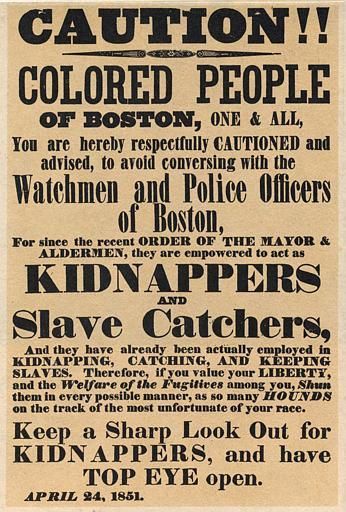
Black Americans have been fully aware of this history for generations because they have been the objects of so much of the violent quest for law and order. Although many people might assume that Riker’s Island was named after the city recorder, it appears that the name originates less from an individual and more from Manhattan’s general Dutch heritage. But though their origins may be different, both the prison and the city recorder share a similar past of neglecting the plight and suffering the New York’s most vulnerable residents.
Now, with some white Americans learning the fraught history of policing for the first time, have they come to realize that the last moments and utterances of Eric Garner, George Floyd, Breonna Taylor and untold others are but modern expressions of a deep and deadly struggle that stretches back to America’s earliest beginnings.
#The So-Called ‘Kidnapping Club’ Featured Cops Selling Free Black New Yorkers Into Slavery#New York#slavery#Freedmen#Kidnapping Freedmen#New York PD Slave Catchers#paddy rollers#police are slave catchers#nypd#fuck the police
12 notes
·
View notes
Text
Bianchi told his precinct commander that he did not agree with the courtesy card policy and claims he was told: “Is it better to be right or better to be on patrol?”
Bianchi’s service as a traffic cop ended last summer when he wrote a ticket to a friend of the NYPD’s highest-ranking uniformed officer, Chief Jeffrey Maddrey, the lawsuit states. The woman never mentioned to Bianchi that she knew Maddrey, and the stop was “unremarkable”, according to the lawsuit.
Bianchi claims he was later warned by a lieutenant that the stop “pissed off someone very high up”, and that Maddrey had called the precinct commander to demand that Bianchi be punished. Three days later, he claims, he was off traffic duty and on a night patrol shift.
Here's your daily reminder that the police are an inherently corrupt institution and All Cops Are Bastards
#''inherently corrupt''? but isn't this an instance of behavioral corruption that could be reformed and removed? WRONG.#the fact that the police have the power to do this (and the power to enforce or not enforce such issuances) is inherently corrupt#and that won't change whether or not the practice is officially accepted policy or not#police#acab#a.c.a.b.#nypd#bianchi#maddrey#fuck cops#fuck the police#fuck 12#abolish the police#mine
19 notes
·
View notes